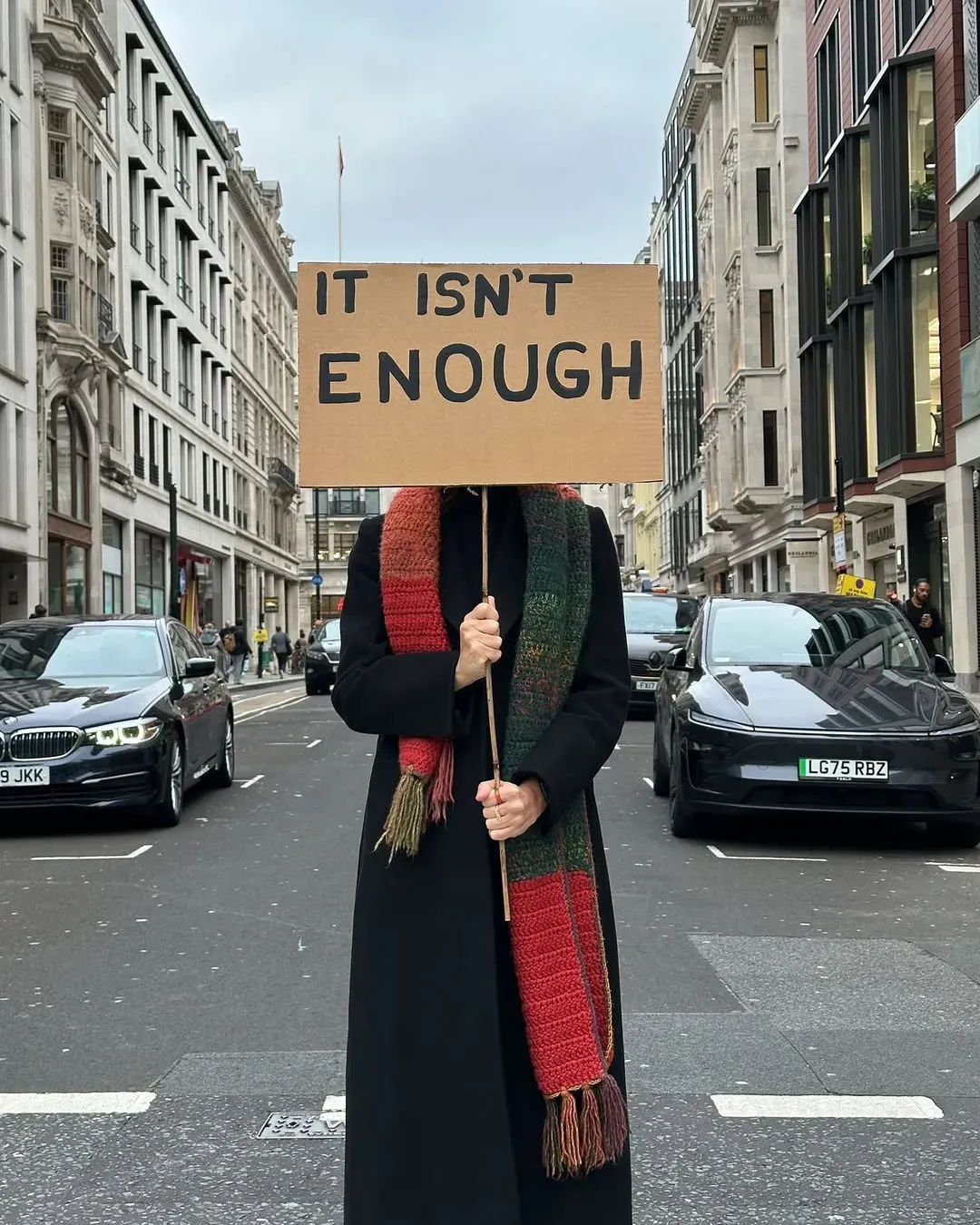
What will happen now with British fashion? Amid staff cuts, tax burdens and sales crisis
This week, The Telegraph reported that Burberry could cut up to 400 jobs in the UK as part of a radical cost-cutting program aimed at supporting declining profits. The brand has seen its market value drop by over a third since the beginning of the year, positioning it as one of the worst performers in the FTSE 100 and at risk of being relegated from the blue-chip index, a term borrowed from poker indicating a group of stable and "safe" stocks. Affected employees were informed via Zoom in late June, and the company has initiated a 45-day consultation period, indicating that hundreds of positions could be eliminated. Even CEO Jonathan Akeroyd did not receive his annual bonus of £2.3 million in May – for obvious reasons. Akeroyd, who joined Burberry from Versace in 2022 with an upfront payment of £6 million, has unsuccessfully tried to turn the brand around and recently attributed part of the financial problems to the abolition of duty-free shopping in 2021 – a legislative decision made post-Brexit aimed at simplifying the tax system and reducing fraud, but which has actually hit the country's retail sector like a plague of Egypt. It drastically reduced tourist shopping, making it less competitive compared to Italy and France; it caused a collapse in sales for luxury brands and multi-brand stores, pushed several indie brands to close or be bought out, and among other collateral damages, led to job losses as reported by The Telegraph. But with the new government, are there hopes to turn the situation around? Yes and no.
@terrentips Traveling to Europe? Reminder that there are no more VAT refunds for purchases in the UK. #vatrefund #salestax #taxrefund #shopping #shoppingtips #shoppingineuro #shoppinginuk #ukshopping #europeshopping #shoppingtime #retailtherapy #money #moneytok #moneytok #moneytips #finance #finance101 #financetiktok #financetips #lifetip #lifetips #personalfinance #financialliteracy #shopping101 #luxurygoods #londonshopping #shoppinginlondon #europe #uk #unitedkingdom #chanel #paris original sound - TerrenTips
Although the new government has inspired confidence among the electorate, there are mixed expectations for the retail and clothing industry - a £28.9 billion annual industry for the British economy, as reported by The Standard. Labour has indicated that it has no plans to repeal the controversial ban on tax-free shopping for foreigners, even though a study last year by the Centre for Economics and Business Research (CEBR) not only showed that the abolition of duty-free shopping cost the national GDP over £10 billion but that "the additional revenues generated by reintroducing the system would outweigh the losses associated with VAT refunds by £2.3 billion in 2023." Despite the absence of fashion in Labour's manifesto, the party has promised to support the creative industries by adding the arts to STEM school programs and trying to stimulate apprenticeships. According to The Standard, "the BFC predicts that an additional one million jobs could be created by 2030" if the reintroduction of the arts is supported. Trade ties with Europe are another focal point, although a return to the pre-Brexit era of free movement and easy market access is not expected. Prime Minister Starmer has ruled out re-entering the EU's single market, meaning that any improvements in trade relations will require difficult negotiations with Brussels. The British Fashion Council has requested financial support to help designers reach international markets and reduce regulatory burdens when trading and working with EU manufacturers.
Chairman of one of the UK's biggest fashion brands has called a Government Brexit policy "a spectacular own goal."
— Channel 4 News (@Channel4News) April 24, 2023
Burberry's Gerry Murphy tells Rishi Sunak that the UK is the "least attractive" shopping destination in Europe after scrapping the VAT refund for tourists. pic.twitter.com/8U8ICwwHkR
On the sustainability front, Labour's position remains uncertain. The UK has lagged behind other regions in imposing strict sustainability regulations in the fashion industry. But even though the BFC has highlighted the significant environmental impact of fashion, often cited as the third-largest polluter in the world, operations like Shein's IPO in London still seem entirely probable. Labour's position on Shein's IPO, for example, is not clearly defined, but it is expected that current market conditions and promised economic reforms, such as improving trade ties with Europe and business rate reforms, could actually speed it up. Another topic is manufacturing: The Standard reports that the Fashion Roundtable (FR) has called for British factories to resume producing military and healthcare uniforms, emphasizing that stable orders from such institutions could provide long-term employment and revenue opportunities for the sector. The FR has also stated that more effort is needed to promote and invest in the UK's manufacturing capabilities, which, although small, are significant. Factories in London, for example, are highly skilled, capable of working as well as Parisian couture ateliers, and recent high-profile events like Dior's Cruise show in Perthshire employed British brands like Harris Tweed.
In general, however, as Financial Times explained, the new Labour government has outlined a clear focus on improving living standards, which should increase citizens' spending power. First and foremost, Labour intends to continue promoting employment growth, while also evaluating welfare and state aid reforms and working closely with the Bank of England and the Office for Budget Responsibility to stimulate growth without rekindling inflation, allowing businesses to thrive, leading to greater job opportunities and higher wages. There is also a plan to ease planning regulations and encourage construction projects, increasing housing supply and reducing costs. In any case, as explained by CNN, analysts expect British assets to become more attractive under the new government. Jefferies analysts noted that Labour's victory would contribute to a perception of stability that, combined with potential regulatory reforms, could increase the attractiveness of British assets, especially thanks to new house constructions that could boost construction stocks and attract private investment.
The new government's economic direction could generally be a positive signal: greater prosperity means greater consumption, and it is known that a rising tide lifts all boats. Waiting for the first hundred days of the new government to pass (traditionally the period during which the new executive will demonstrate which are the most urgent issues to address and during which new administrative dynamics will be clarified) and see what reforms will be introduced, Jefferies analysts cited by CNN said that the UK situation appears relatively stable. Nonetheless, it remains clear that among the numerous problems the UK is facing, the fashion and luxury sector, however profitable, is not the new government's absolute priority. The most immediate hope should be the lowering of interest rates, which could at least partially compensate for the problems arising from the abolition of duty-free shopping. Certainly, the new government has the political backing to achieve this – the problem, as always, is translating what is written on paper into reality.















































